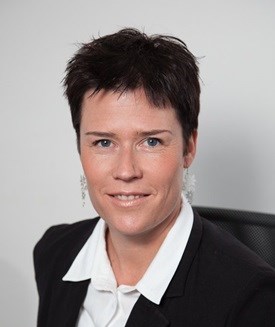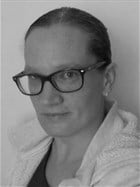Software development is one of the most sought-after skills in today's job market and is therefore one of the most highly-paid career choices on offer. And the great thing is, you don't have to go to university for three years to learn the skills needed to succeed in the digital industry.
We spoke to Tania van Wyk de Vries, managing director of Digital Geekaship - a new player in the online learning space that offers entry-level, practical software development courses - about the institution's beginnings and what students can expect when joining their programme.
Tell us a bit about the Digital Geekaship and its origins...
In 2012, Digital Geekaship’s sister company, Infoware Studios entered the software development space. At the time, the competition was intense, but we were determined to push through and make an impact in the sector. We looked at the gaps and needs of clients and realised that corporates were not taking on junior software developers. Since we are passionate about developing talent to boost Africa's technology capacity, we explored adding junior software developers to our team and grow their skills. This gave us insight into the skills that software development graduates lacked, the skills that industry valued and needed in productive technical teams and actively devised strategies to close the gap between the skills of graduates and the skills technical teams in industry required. We took on a few more graduates, exposed them to a guided learning programme while actively working on projects and over a period of a few months, we realised that our methods to develop young software development talent for the corporate works. Graduates can be ready within five-six months.
Besides the technical, hard skills, we realised that we needed to focus on the soft skills too, especially self-confidence. We wanted to change this. Graduates are often rejected because they do not portray confidence in themselves and their ability, which disadvantages their placement and leads to being eliminated from the selection pool.

Tania van Wyk de Vries, managing director of Digital Geekaship
In 2014, we developed our internal content and ran our first formal programme as a proof of concept with three graduates from two different education institutes. In 2015, we ran our second programme with 23 graduates, and in 2017, we ran our third programme with 15 graduates. At the end of 2017, we decided that there is a gap in technology education after seeing the success of the three programmes where we achieved an 85% placement rate of our students.
We believe that Africa has talent and can become a technology outsourcing destination to reckon with if we can develop this talent. Our programmes are aimed to deliver on this vision.
Youth in Africa just needs a chance, but often are not given the opportunities to prove themselves.
What courses do you offer and who are they accredited by?
Currently, we offer two courses both in the classroom as well as online from 16 April 2018:
- Software Development Basics (2.5 months), where the student gets to choose between Java, C# and JavaScript. This is an entry-level course, no prior coding experience is required.
- Full-stack Web Development (5.5 months), where students learn all that is needed to develop a web application end-to-end. This is an intermediate level course and a candidate must either have completed the Software Development Basics course or have coded in at least one language before and demonstrate the basic understanding of all concepts covered in our Software Development Basics course.
Our Intermediate Software Development is done once a student has completed the Software Development Basics course. This course will be available beginning July for those who graduate from the Software Development Basics course starting 16 April 2018.
In 2017, we applied to register as a tertiary educator with the Department of Higher Education and Training and are in the process of preparing our courses to be accredited.
We are in the process of accrediting our courses with the South African accreditation framework.
Currently, all students will receive a certificate of attendance upon completing the course.
What are the entry requirements?
All candidates go through an entry assessment focusing on creative thinking and problem-solving to join. For the Full-stack Web Development Course, students also complete a coding assessment (evaluation of their coding skills), so we can get a feel for the level potential students are on. If there are gaps, students will be required to complete some modules in the Software Development Basics Course.
What should potential students know before applying?
Our courses are very practically focused, and learning is reliant on mentorship, collaboration in teams on the programme as well as the candidate developing their online searching skills, as the internet is any developer’s best resource. All the course information is in a condensed set of supporting material in the form of handouts and videos (these are available on the internet). We do not make available textbooks of information. The student will be required to self-study using the supporting material and engage his / her mentor and fellow students for guidance as needed.
Here is a link to our YouTube channel, where students can find videos on more information about our courses as well as access videos of our open day held at Embury, Waterfall Campus.
Who should or shouldn't apply for this course?
Anyone who is keen to learn the basics of software development should apply for the course. Candidates need to demonstrate a problem-solving capability as this is key to becoming a hotshot developer.
What aptitudes should a good student have?
Natural interest and ability to solve problems
An inquisitive mind
Logical thinking
Practical approachWhat unique opportunities do you offer your students?
All the content of the courses are developed by software developers, software engineers and development managers. The student can be assured that what they will be learning is not only industry-related but also industry-relevant.
We also offer all students access to software engineers as mentors for the duration of the course. Specific to each student - their work gets reviewed by a mentor, and personal feedback is provided to guide the student to progress to success.
We also present all our students who have studied with us for 5.5 months to our corporate network for career opportunities and placements. We have a success rate of 85% placement of our students to date.
Which careers could graduates expect to go into after completing this course?
- Junior software developer
- Junior software engineer
- Junior web developer


































